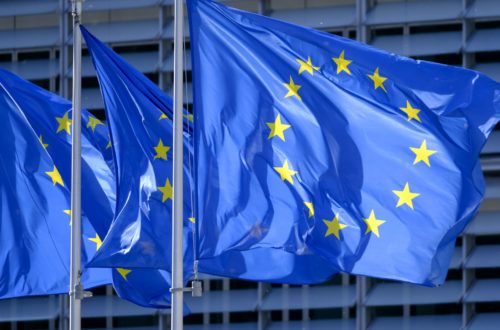
Editorial | Volume 22 No. 1
Dear readers,
It is our pleasure to bring to you this latest issue of the German Law Journal, (vol. 22 issue 1), the first of a new year that has already been highly eventful. Wishing you a happy new year under the exceptional circumstances we continue to find ourselves in might seem a little jarring, but we hope you were able to have some rest over the festive period, and that you continue to stay safe. This issue provides a showcase for timely and insightful research in European Union law, and we hope that you enjoy reading it as much as we enjoyed selecting these articles for it.
We open with Pascal McDougall ’s ‘institutionalist approach to trade theory’ in the context of the ‘European Green Deal’ on labor rights. In this article, McDougall makes the case that lower-income countries should be allowed to subsidize their firms to insulate workers from disturbances resulting from the heightened costs generated by the new environmental regulations. Focusing on the production of goods traded across Member State borders, McDougall analyses regulations of permissible production techniques and taxes that cause raises in the costs of production, and makes the case that environment, the market, and labor should be understood as complex interlocking phenomena.
In their article, Sandra Seubert and Carlos Becker consider, within the context of the challenges posed by digital transformation, the democratic significant of constitutional protection for individual privacy rights in Europe. Drawing our attention to the way in which the constantly evolving structures of digital communication and data processing pose threats and challenges to both communicative freedom and individual privacy, the authors present a social understanding of privacy. Expanding on the conceptual link between privacy and communicative freedom, Seubert and Becker argue in favour of taking steps to generate collective trust in communicative network structures.
Suzanne Andrea Bloks and Ton van den Brink identify the central question of their article as being, what national sovereignty implications are raised by mutual recognition in EU criminal law? They consider this question in the context of two decades of EU criminal law and with specific reference to the Framework decision on the European Arrest Warrant in the Area of Freedom, Security and Justice. Citing the key issue as mutual trust, the authors highlight how European court jurisprudence has embedded this within a fundamental rights framework, and assess the idea that mutual recognition in EU criminal law has less of an effect upon national sovereignty than harmonization.
The issue at the core of Emilia Korkea-aho’s investigation is whether or not legal lobbying by law firms should be subject to regulation. This article outlines the development of legal lobbying as a service offered by large Brussels-based law firms, discusses how the sector avoids regulation under the European Union Transparency Register by relying on the legal advice exception, and considers the difficulties in distinguishing between legal services and ones that influence public policy. Korkea-aho engages with this regulatory controversy through engaging with literature on the legal profession, articulating two lawyer roles – the advocate and the legal expert – and identifying a new creature, the lawyer-lobbyist.
Victor Torre de Silva’s article reviews and critiques the Junqueras judgment, a preliminary ruling by the CJEU Grand Chamber, requested by the Spanish Supreme Court, on the issue of European Parliamentary immunity for Mr. Oriol Junqueras, the Vice President of Catalonia’s Regional Government, who was subject to Spanish criminal charges. Torre de Silva places this case in the context of the CJEU’s jurisprudence, considers whether the Court took sufficient and correct account of human rights case law, and comments on the ongoing suitability of the EU law governing MEP inviolability.
In his article on peer-to-peer-lending within the EU, Federico Ferretti considers the extent to which this practice falls within the ambit of EU laws intended, on the one hand, to protect the interests of consumers and, on the other, to protect investors from identified risks. Placing P2P-lending in the broader context of Fintech and big data analytics, and noting that such lending practice is not explicitly regulated at EU level, Ferretti analyses EU credit laws to analyse the concepts of ‘responsible lending’ and the ‘creditworthiness assessment’.
Concluding this issue, James Marson, Hasan Alissa, and Katy Ferris draw our attention to the fact that, with respect to the EU’s Motor Vehicle Insurance Directive (MVID), a great deal of uncertainty permeated UK national motor vehicle insurance law. These uncertainties and ambiguities appeared to stem from how the UK government and judiciary seemed collectively to reject the idea that the MVID had broad application. The authors argue this to mean the UK failed to fulfil its duty effectively to implement the MVID, with the result that pre-Brexit UK motor vehicle insurance law undermined EU free movement principles. Their argument that reliance on Factortame provided a way out of this bind means, therefore, that we finish this issue on a rather nostalgic note.
As always, the publication of this issue has depended upon on the outstanding contributions of the authors, the dedicated work of our student editorial team, and the committed peer-review work undertaken by our editorial board. To these we extend our grateful thanks, and present to you issue 22(1),
on behalf of the German Law Journal editors-in-chief,
Jen Hendry







